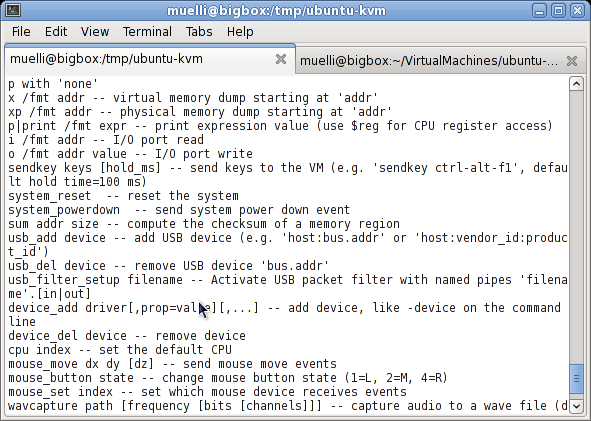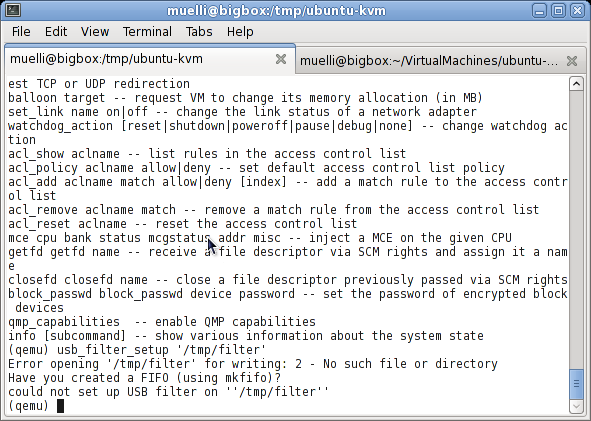
I was invited to Ekoparty in Buenos Aires, Argentina. It all went very quickly, because when I was accepted for my talk on Virtualised USB Fuzzing using QEMU and Scapy, I couldn’t read email very well. I was abroad and had only a replacement laptop (which we got at MeeGo Summit in Dublin) at hand because my laptop broke down 🙁 And of top of that I wasn’t very well connected. Anyway, I got notice exactly two weeks before the conference and actually I had other plans anyway. But since it was in Argentina and I haven’t been there yet, I was very eager to go.
I was going from Hamburg via Amsterdam and Sao Paulo to Buenos Aires. And back from Buenos Aires via Charles de Gaule to Berlin. After my first fight I had a good break at Shiphol but when I wanted to board the next flight, I was denied at first. After a couple of minutes, some officials came and I was interrogated. Because my itinerary looked suspicious, they said. So I was asked and searched and the information I gave was promptly checked by they woman and her smart-phone. Weird stuff. The next flights and airports were fortunately much better.
The very first day of the conference was reserved for the keynote and workshops. Unfortunately, the workshops were held in Spanish only so I couldn’t really follow anything. But I still attended some folks playing around with an USRP. It was interesting enough despite the Spanish. They decoded normal FM radio, pager messages and other (analogue) radio messages flying through the ether. The keynote was held in Spanish, too, but two translators simultaneously translated the talk into English. It’s the first time that *I* am the one needing a translation device 😉 I didn’t fully get the keynote because the there was a lot of noise in the radio of the Spanglish :-/
The first talk by Agustin Gianni from Immunity was about Attacking the Webkit Heap and was, well, very technical. A bit too detailed for me as I don’t have much desire to exploit memory issues in Webkit, but it’s good to know that there people looking into that. Just after that, there was a talk about security of SAP products. The message I got was, to read the SAP advisories and documentation. Because he was showing exploits that used vulnerabilities that were either known and fixed or documented. It was still a bit interesting for me as I didn’t know much about SAP systems and could see what it’s actually about.
I don’t have much to say about the iOS forensic talk, because you can find the things he mentioned with a one liner: find / -name '*.db'.
Ryan McArthur talked about Machine Specific Registers which I didn’t even know what it was. But apparently CPUs have special registers that you usually don’t use. And these have special capabilities such as offering debug facilities. Also you can issue a simple instruction to detect whether you are in a virtual machine or not. That sounds damn interesting. With Intel it’s called Last Branch Recording. And he implementing something that would be able to trace programs like Skype. I wonder though what difference to PaiMai is. An implementation using these facilities apparently exists for Linux as well.
A bit off the wall was Marcos Nieto talking about making money with Facebook. So he realised that he could send the AJAX request, which some Flash game sends to the game server, himself. He didn’t think about writing a bot playing the game for him though. Instead, he used a proxy to capture the HTTP traffic his Flashplayer was generating and replaying that traffic with the proxy software. And the money part would then be to sell the account that had all the experience points on eBay. I hope it was just the translation and the crappy quality of the radio that made it seem so lame.

As for my presentation, I wasn’t too lucky with the MeeGo laptop I used, because it only has an Atom processor which doesn’t have KVM support. That is very bad if you want to do something with QEMU 🙁 But I tried to prepare my things well enough to not have many problems. But what happened then was really embarrassing. I prepared demos and I did that very thoroughly. I even recorded some videos as second line of defence in case something fails. But I didn’t expect anything to fail because my demos were simple enough, and just a few copy&paste jobs. That’s what I thought and Murphy proved me wrong. I hate him. So my demos did not work, of course. I still don’t really know why, but I guess that I left a QEMU instance running due to the nervousness. And that instance would still mess around with the pipes that I was using. So lessons learnt: Whenever you think it’s simple enough, think harder.
Demo-Video. If it doesn’t play inline (stupid wordpress) please download yourself.
The rest of the conference was relaxed and the talks were much better than the day before. I feel that the second day was saved for the big things while the first was thought of as a buffer for the people to arrive. There was the SSL talk which caught a lot of attention in international media even before the conference. For reference: The issue was assigned CVE-2011-3389. I was astonished, really, to hear *the* talk being held in Spanish. I absolutely expected that thing to go off in English. Unfortunately, I couldn’t understand much of the things that were told. It took me quite a while to understand that the “navigator” the translatress was constantly referring to is actually the browser… So I was disappointed by that talk, but the expectations were high so it was easy to be disappointed.
http://www.youtube.com/watch?v=lauFlKi56aM
So all in all it went fine. It’s a nice enough conference, really relaxed, maybe even too relaxed. Given that there was one track only, it didn’t really matter that things bent the schedule by two hours. I felt that generally things went off the radar of the organising folks, most likely due to organising a conference being very stressful 😉 But well, it would still have been nice if they actually provided the facilities they promised to give a talk, like a USB cable or a demo laptop 😉 I barely got a T-Shirt 😀



